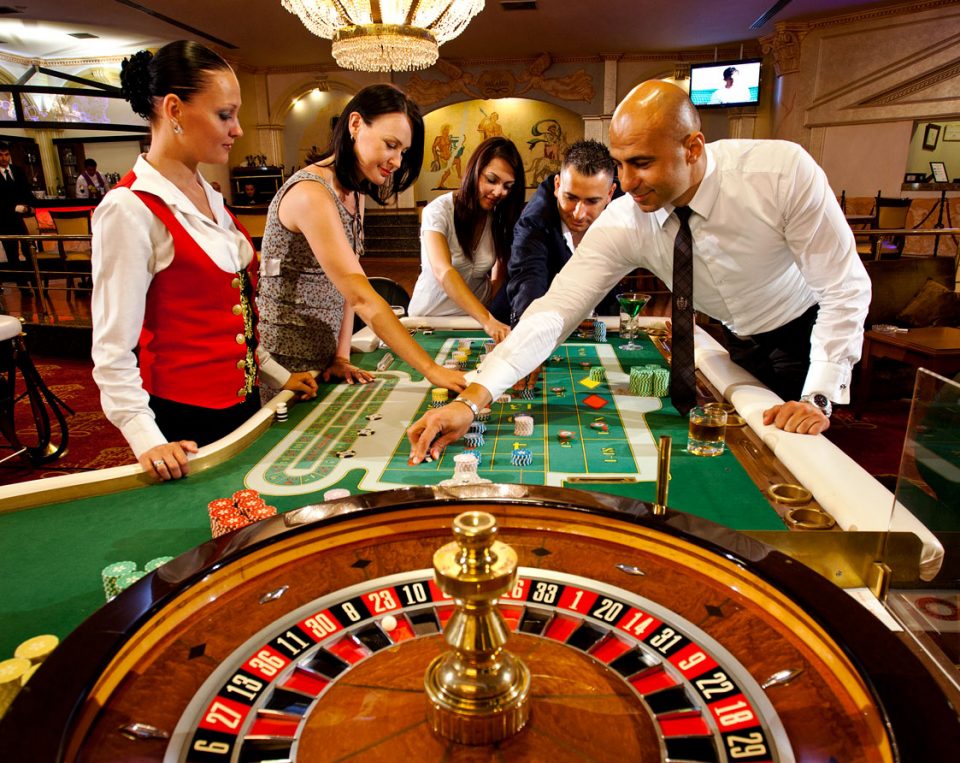
Casino entertainment have long been a engaging source of amusement, drawing numerous of players from diverse cultures around the globe. From the glitzy casinos of the Strip to the thriving gambling halls of Macau, these games serve as a link that connects people across various backgrounds. The allure of fortune, skill, and risk entices not only those looking to strike it rich but also those seeking a shared experience.
The cultural impact of casino games extends well beyond the gaming floor. They often represent the values and beliefs of the societies in which they flourish. Games such as seven-card stud, pontoon, and the wheel game have woven themselves into the mosaic of cultural phenomena, influencing everything from movies to clothing. As we explore this captivating intersection of chance and culture, we can gain insights into how these games shape and are influenced by the surrounding world.
Historical Evolution of Gambling Games
The beginnings of casino activities can be tracked back to old cultures, where betting in various forms was widely performed. In the East, around two thousand three hundred years before Christ, a type of luck game known as Keno was popular, while in ancient the Roman Empire, soldiers would regularly wager on the results of their games. The notion of using randomness for fun and income developed over the centuries, leading to the establishment of more structured games. By the end of the Middle Ages, betting houses initiated to emerge in Europe, particularly in the Italian peninsula, which brought forth early incarnations of well-liked activities still practiced today.
As gambling expanded popularity in European regions, the 17th and 18th centuries saw the emergence of gaming houses as specialized establishments for gaming. The initial official gambling house, the Ridotto, was set up in Venice in the year 1638, featuring activities like Baccarat games and Faro. This time marked a crucial turning point, as casinos began to draw not just the elite but also the growing middle class. The complexity of games grew, leading to the introduction of new guidelines and variations that improved the play experience.
In the 19th century, the industrial age and transformations in societal norms further transformed the terrain of gaming games. The arrival of the game of roulette and new gaming machines attracted a broader crowd, and gaming houses became seen as legitimate forms of entertainment. This time witnessed the international spread of gambling, as gambling houses expanded from European nations to the New World, culminating in the establishment of the legendary Las Vegas Strip in the 20th century. The progress of gambling games has persisted into the present day, including modern technology and online services, rendering them accessible to a universal audience.
### Cultural Importance within Diverse Cultures
Casino games have profound cultural value within numerous communities across the globe. For instance, in Las Vegas, the very essence of the city is woven around casinos, where playing is not just a pastime but a fundamental aspect of entertainment and social interaction. The bright lights and dynamic atmosphere attract countless individuals, showcasing how gambling activities can shape local economical structures and local cultures. This environment transforms the notion of leisure into an enriching encounter that affects fashion, sound, and even film.
On the other hand, some societies treat gambling with more caution, viewing it through the lens of ethical beliefs and customs. For instance, in many Oriental communities, games like Mahjong and Pai Gow Gambling are full of history and have significant social implications. These games are often played during meetings and celebrations, fostering collective connections and solidifying kinship ties. The act of playing these games goes above mere leisure, reflecting principles such as deference to seniors and the importance of collective enjoyment.
Simultaneously, in continental countries such as Monte Carlo and Rome, gambling activities serve as symbols of luxury and sophistication. not on GamStop The elegant atmosphere of these venues attracts both travelers and native inhabitants, upholding a sense of prestige and exclusivity. The art of poker and the strategic features of games like baccarat are celebrated, shaping interpersonal interactions and cultivating an attraction that enthralls a diverse audience. This emphasizes how games of chance can simultaneously reflect and shape societal views towards danger, benefit, and relationship building.
Financial Influence and Tourism
Casino games play a important role in the financial context of many regions, particularly those that depend significantly on tourism. The revenue generated from gambling establishments fuels local financial systems, creating jobs not only within the casinos themselves but also in connected industries such as hospitality, dining, and recreation. This surge of tourists, drawn by the attraction of games and the overall casino experience, stimulates expenditure across multiple local enterprises, contributing to the economic vitality of the area.
The existence of casinos often leads to the development of facilities, including hotels, transportation systems, and leisure amenities. These developments are essential in improving the overall tourist experience, making destinations more appealing to tourists. Additionally, many casinos contribute in local communities through support of activities and philanthropic initiatives, further embedding themselves into the community structure of the region. Such contribution not only supports economic growth but also cultivates a positive image of the casino industry.
Moreover, the worldwide appeal of casino games drives competitive tourism, with regions vying to attract players from around the world. Iconic destinations like Las Vegas and Macau have become synonymous with gambling culture, drawing millions each year. This advantage encourages innovation and diversification within the gaming industry, influencing developments in entertainment and accommodation that extend beyond their limits. The ripple effects of this visitor influx extend wide, impacting local financial health and cultural exchanges on a worldwide scale.
